
By Hayley Dean, ellaslist
My darling little boy starts big school next year. Whenever I think about this I seem to find myself excited and a bit sad at the same time. And then I start to think about readiness – will he be ready? What can I do to help him be ready?
We reached out to educators at three Sydney early learning centres for their thoughts on school readiness. Here’s what they had to say:
Q. What areas do early educators focus on when preparing pre-schoolers for “big school”?
Guardian Early Learning Centre: We want children to be confident and involved learners, so we focus on independence and social and emotional skills, rather than developing specific literacy and numeracy skills.
Green Elephant Early Learning Centre: We always focus on the social and emotional skills as well as the cognitive learning. It’s just as important for a child to be able to sit and listen to a teacher and communicate their needs as it is for them to be able to read and write. We encourage verbal communication and independent social play for the children to develop their turn-taking skills and be able to share and wait their turn. For literacy and numeracy development we try to develop and support the children’s love of learning through play based experiences that are hands on and allow all children to contribute and take a turn. We read stories every day and talk about numbers in the world around us like dates and birthdays. We also focus on phonics, and the actual sounds that letters make, to prepare the children for reading and writing. This allows the children to recognise letter combinations and understand the association between the shape of a letter and the sound it makes.
Bliss Early Learning: We focus on independence, self-help skills, following and understanding instructions, (the more instructions the better) getting dressed and undressed, being able to toilet, initiating and joining play, holding a pen/pencil.
Children learning from their world, their social/emotional wellbeing Language, literacy, numeracy skills, self-regulation and coping skills, collaboration and working within a group, understanding the importance of manners, being respectful and empathetic towards others. It is always important to ensure we cater to the individual child’s needs, this includes incorporating family objectives and expectations. Along with the fundamental skills required to support your child’s everyday life.
Kids Club Northern Beaches Centre: We focus on independence skills, the social and emotional self (the child must be able to socialise and cooperate with their peers and adults and being able to identify and communicate their feelings), routines (they give children the emotional stability they need and are essential to good behaviour and attention span), teaching respect for themselves and others, and academic skills
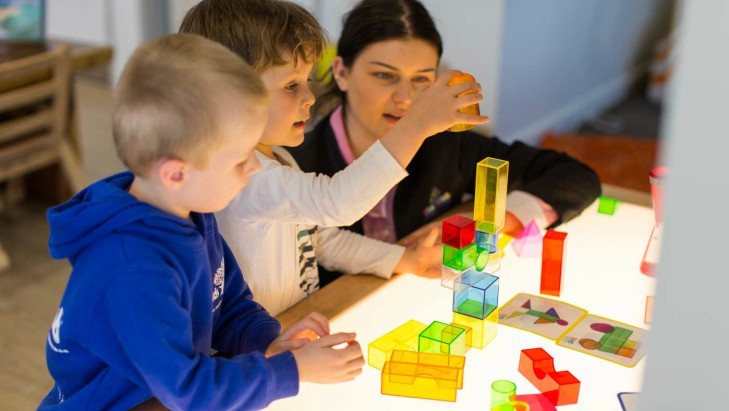
Q. What does independence look like for a 5/6 year old?
Guardian Early Learning Centre: We want to ensure that the children can be independent to take care of their own belongings such as (school bag, water bottle, hat, lunch box etc). Opening snacks seems like a small task but for children 5/6 old it is quite difficult and can be quite daunting. So at our service we organise 'Lunch Box Days'. The educators will show the children how to unwrap their sandwiches, open packaged items or even peel a banana.
Kids Club Northern Beaches Centre: We look for independence in toileting, dressing and undressing, asking for help when is needed, solving their problems, looking at things from different perspective, taking care of their belongings or those that belong to the wider community. We provide the children with a lot of activities that give them opportunities to become independent with all furniture, bathrooms at the child’s level.
Bliss Early Learning: Independence is seen as self-regulation of their emotions and feelings, following 2 or more steps, the ability to engage in an experience without assistance, taking care of their own belongings, carrying their own bag, remembering their own hat, water bottle, and taking responsibility for these things.
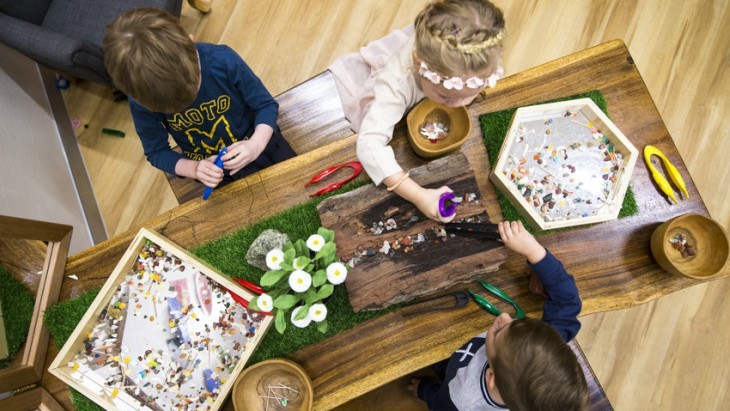
Q. What areas can parents work on to get their child ready for school next year?
Bliss Early Learning: Parents can help their children by setting them up for success… involve children in everyday life experiences by taking them shopping with them to buy water bottles and lunch boxes that the child can open buy themselves. Given you child responsibility, write a “school shopping list”, allow your child to lead the process, ask them questions “what you think you need for “Big School”. Attend orientation visits arranged by the school with your child. Talk about "Big School", give realistic expectations and tell them what is going to happen in a positive and exciting way.
Kids Club Northern Beaches: At home you can support your child's independence by creating an accessible environment, involving them in daily practical life activities (setting up a table, self - serving, tidying up, food preparation, dressing up) and most importantly make them feel appreciated. Having 20 minutes of your undivided attention is better than 2 hours when you are not present and pre occupied with other things.
Other things you can do to get your child ready for next year include:
- liaising with your early learning centre about reading readiness program, and support this program at home;
- play with the language - by making rhymes or by playing games like “I spy” (look for objects at home beginning with the initial sounds);
- practice writing in sand using fingers, sticks, brushes;
- read to your child - After reading the story see if your child understands it. Asks questions about the plot, main characters, their favourite part, ask them to change the ending, draw the story
- set up a small library at home
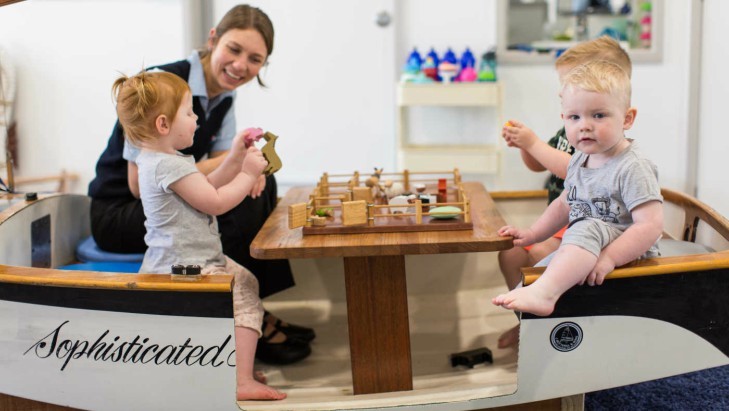
Q. Does my child need to know their ABC's before they start? Or write their name?
Guardian Early Learning Centre: No, these are not a requirement.
Bliss Early Learning: It is beneficial for children to have an awareness of letters and numbers through discussions and pointing out symbols within their environment. This will enable them to have time to explore the meaning, while building an understanding of the importance, and the role, of the alphabet in our day to day lives. Although name recognition is important, and yes, children being able to write their names and knowing their A,B,C's is going to give them a head start. It is more important for children to be able to concentrate and be able to sit still for at least short periods of time and focus on what is being said and follow instructions.
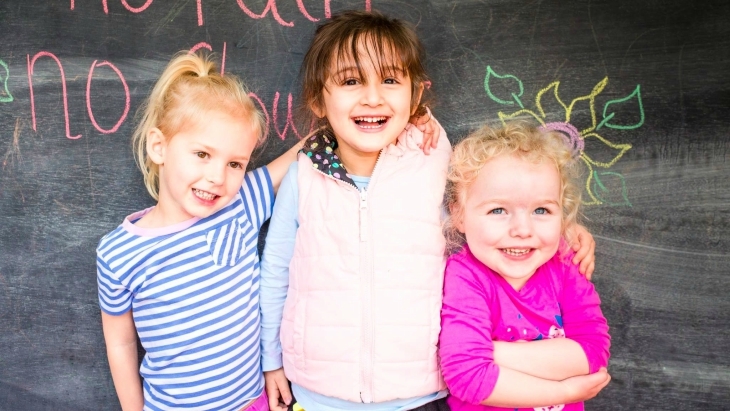
Q. What signs do I look for to know my child is ready to start?
Guardian Early Learning Centre: There are a few signs as educators we observe in children to know that they are ready for school. For example, their self-confidence, social skills, engagement in self-help tasks, self-regulating their emotions, dealing with conflict appropriately, following instructions, ability to take turns, have positive relationships with their peers and show they want to be part of a group. These a just a few signs, However I believe that all children are different with different personalities, characteristics and traits. Not all children are going to show these signs but doesn't mean they are not ready. If you feel they are not ready, there is not harm in keeping them back. You want your child to feel comfortable and confident in a school environment. Let your child take their time, let them go at their own pace. Don't forget they have 12 years at school where they will write their name and ABC'S.
Bliss Early Learning: A child is ready to start when they are confident in their own capabilities and identity, they are able to initiate play, able to take care of their belongings and engage in a group setting- (sharing, takes turns, waits patiently, negotiates, follows limits, expectations, and routine), showing respect and empathy to others around them.
Q. What advice can you give for surviving day one of big school?
Bliss Early Learning: Talk to your child about what is going to happen and remind them of their orientation visits. Encourage the child to wear their uniform before starting school and make it an exciting process about them wearing. Practice packing a school bag, eating from their lunch box. Have a routine for drop off that starts from the first day, give them a countdown to when you are about to leave and stick to it, even if they cry. After you say your goodbyes leave and don’t hang around, remember… your child’s teacher is a professional and has dealt with day one many times
Parents… you need to be brave and don’t look back! Some advice to parent… arrange to do something that is self-care, rather than just rush straight to work because many parents cry in the car on their first drop off (and this is okay!).
Guardian Early Learning Centre: Get excited for this exciting new journey. Take lots of photos with their big happy smiles, shiny new shoes and beautifully pressed uniforms and don't forget to take your tissues and sunglasses because we all know there will be tears… but not from the children.
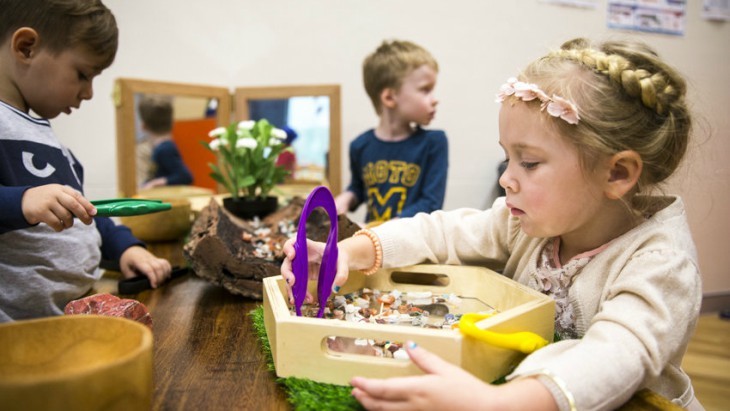
A special thank you to the educators at these early learning centres for providing their insights into school readiness.
CREDITS
Guardian Early Learning Centre – Marrickville
57 Carrington Rd, Marrickville NSW 2204
Therese Quinon, Assistant Manager and Educational Leader
Kids Club Northern Beaches Centre
1A Middleton Road, Cromer NSW 2099
Kamila Jendykiewicz, Director
Various Sydney locations
Kelly Cross, Director
Green Elephant Early Learning Centre
55 Mentmore Ave, Rosebery NSW 2018
Sivan Stern, Director
All Images Credits: Kids Club Northern Beaches, Bliss Early Learning
Reviews



 Pick a Date
Pick a Date


